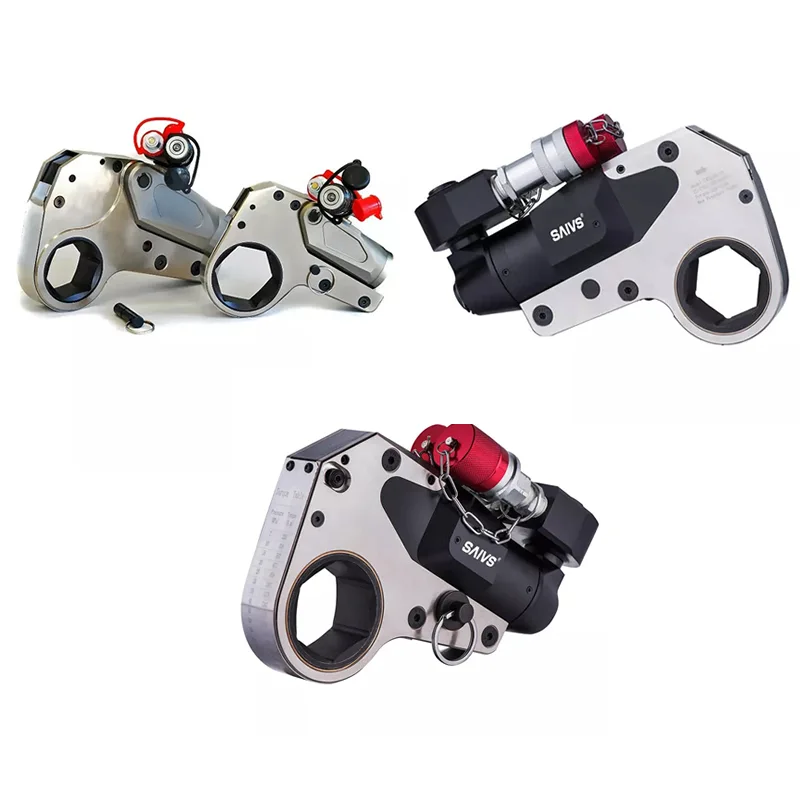Considerations when buying hydraulic torque wrenches
1) A type of hydraulic wrench is capable of handling only a few similar bolts and typically comes with 1-10 sleeves.
This limitation arises from the need to ensure precise fits and optimal torque application for each specific bolt.
By having a range of sleeves, the hydraulic wrench can accommodate different bolt sizes and thread types,
allowing for flexibility in various applications.
2) Manufacturers often prefer using an Electric Pump with two wrench heads to enhance efficiency and
accuracy in the die casting process. By employing both wrench heads diagonally,
torque application becomes more balanced and consistent. This approach ensures that the desired
torque is applied uniformly across the bolts, minimizing the risk of uneven tension or loosening.
3) It is essential to operate Hydraulic Wrenches manually, requiring skilled hand control and regular maintenance.
Hand custody enables operators to apply the appropriate force and maintain
proper alignment during the tightening or loosening process. Routine maintenance tasks include checking the oil levels,
cleaning the wrench components, and inspecting for wear and tear to ensure optimal Performance and longevity.
4) The measurement of bolt torque should adhere to national standards, such as GB,
which aligns with China's specific requirements and conditions. Following these standards ensures that
the torque applied to the bolts meets the recommended guidelines for safety, functionality,
and compliance with industry regulations. Standardized torque scales help achieve uniformity and
reliability across different die casting operations, enhancing overall quality and consistency.
Why Choose SAIVS™ as Your Supplier?
With 20 years of industry experience, SAIVS is a leading Chinese manufacturer of high-quality tools, offering competitive pricing and excellent customer service.We pride ourselves on exceptional quality control, extensive experience, and comprehensive after-sales service.
